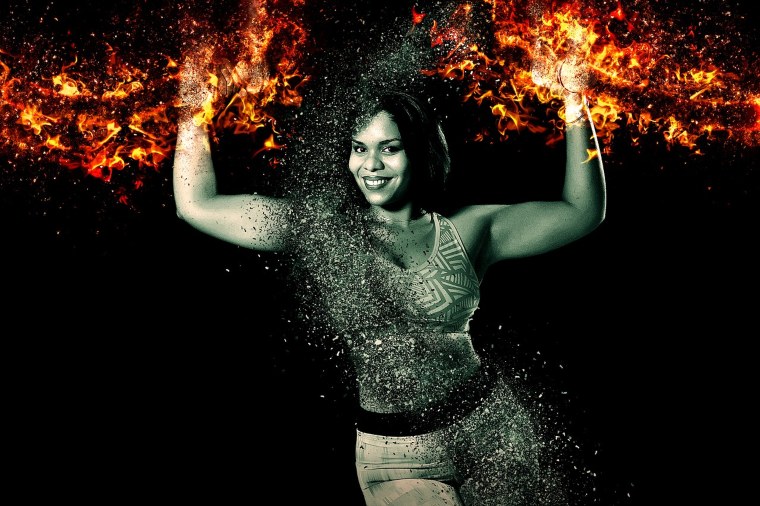We’ve all heard of her; she’s been crooned, immortalized and hyped since the beginning of the 1990’s as the strong, self-sufficient black woman. She’s appeared in film, literature and theater as the saving grace of the black family and the antidote to black male patriarchy. In the process, she’s become the star of African American post-modern folklore; there aren’t too many black families that don’t claim her as one of their own. She has, since the inception of her cultural identity, undergone a new metamorphosis of late – now billing herself as “Boss Lady”.
She is the independent black woman, and when it comes to black men, there are no shades of grey – you either love her or you don’t!
So what’s a man to do? How does a man in the twenty-first century approach, court and date such a poignantly independent sex?
And, why are independent sisters feeling a little hate on the part of black men in an era where we’ve supposedly advanced far enough in gender relations to respect the progress of black women? Can black men really handle this new breed of sisterhood?
The attitudes of black men regarding strong, successful black women seem to run the whole gamut — from a grudging acceptance to applause to outright rejection. After all, the Bible says “he that findeth a wife”, not Ms. Independent!
Such attitudes persist even in the face of statistics that show a widening gap between how black women and men are faring in the American economy and otherwise: more black women than men hold degrees; the unemployment rate for brothers is twice that of white men; and, in a recent poll conducted by Millennium Men of Color, only 18% of black male respondents described relationships between the black sexes as “good.”
How do black men deal with a woman who’s been raised to make it without him and how do black women — the ones who really want to love and be loved — reach out to men who feel this way?
Unfortunately, the line of demarcation is usually marked by economics. It is not sobering that black men and women tend to measure one another by economic means, as opposed to spiritual standards or by more common themes such as family values, work ethic and religious commitment.
There are plenty of men who honor and respect a woman who is at the top financially, professionally and spiritually. Sadly, though, there are far too many men who struggle with this reality. It’s mainly because of how we have been socialized to see ourselves as providers. We’ve been stripped of that role in a sense, not because women insist on being breadwinners, but because, in most cases, they didn’t have a choice.
Unfortunately, men have occupied the bottom rung of the economic ladder when it comes to jobs. We tend to be the first fired and the last hired; overall, American employers shy away from hiring black men, as evidenced by the African American male unemployment rate (5.4% versus 2.9% for women of color twenty and over as of September 2019).
As a result of this role reversal, too many black men either suffer in silence or exhibit hostility toward their more successful counterparts.
Let’s face it guys — our psyche has taken a beating due to this peculiar American experience. Because of this bruising, our reactions have more to do our smaller incomes, and less to do with how much a woman earns. Unfortunately, we focus on meaningless things and miss out on what we really want: a loving relationship where our masculinity is respected and our contributions are valued.
Add to this the I-don’t-need-a-man attitude that began around the earlier 90’s and many men are feeling the blues when in a relationship with a successful woman.
What men need is a new way of thinking. We should attempt to understand that black women, successful or not, are also entangled in a system that has yet to afford them full acceptance in the marketplace. Not only that, we must accept that regardless of how we’ve been socialized, times have changed.
Men shouldn’t lock themselves into a traditional, warped mindset. Are you really going to toss and turn tonight because a woman offered to pay for dinner? Are you less of a man because she makes more money than you? My answer: absolutely not!
Independent black women are here to stay. And, with the emergence in the last decade of Michelle Obama as the quintessential successful black woman, independent sisters are and will be a force for some time.
Finally, as black men, we have to realize that women do need us, just like we need them. There are very few black women who do not need — as Stephanie Mills once crooned — ‘the comfort of a man’. Beneath the thin veneer of financial success, professional acclaim and spiritual bliss is an insatiable need to love and be loved by a man (emphasis on man) who will come correctly.
Take heart men! For every Michelle, there is a Barack! We can relate to our successful sisters and give them their just desserts. In doing, so we become models for a generation of men.

Pastor W. Eric Croomes is a motivational speaker and author. You can reach him at PastorCroomes@Outlook.com and Facebook @ Pastor W. Eric Croomes. Also, see thyblackman.com









